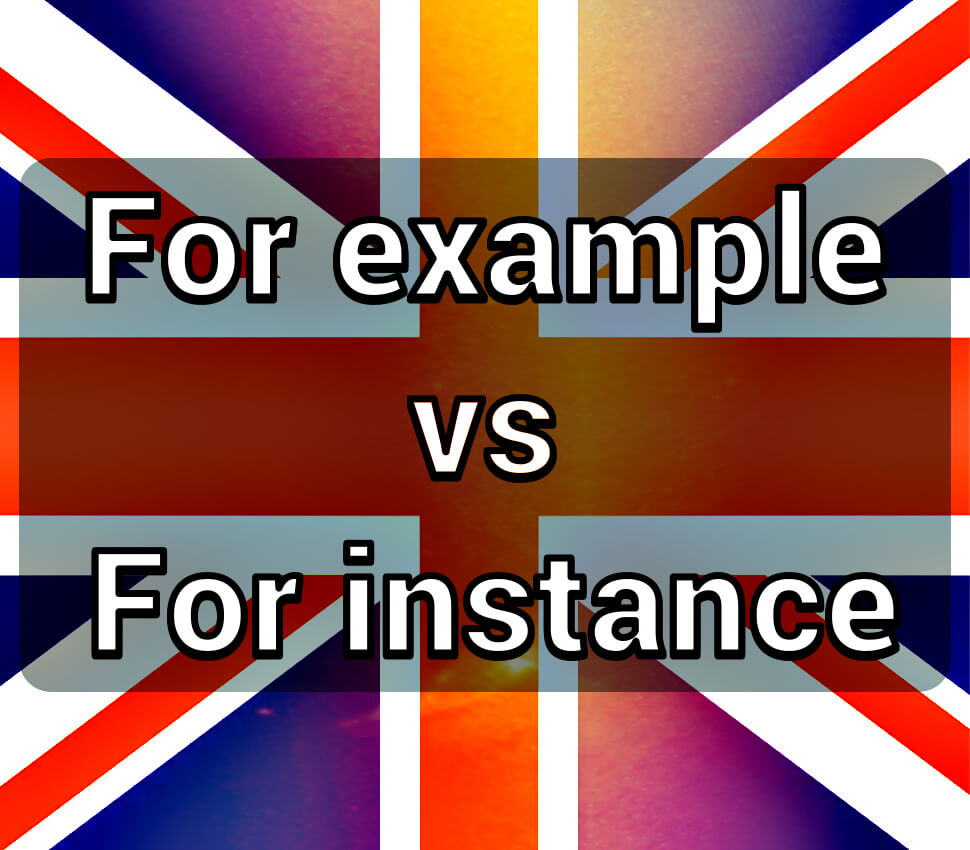When we want to introduce a particular person or thing to explain a topic, we often use “for example”.
But there is another phrase that is sometimes used for the same purpose: “for instance”.
What is the difference?
To find out, read on.
For example vs For instance
In practice, there is no difference between the two phrases. They mean exactly the same and it is your choice which one you want to use.
We use these phrases in two situations.
Firstly, we use them when we are wanting to explain a particular topic by way of giving examples.
Secondly, we use them to support our argument or claims with evidence.
|
|
|
|
In all these situations you can use both “for example” and “for instance” with no change in meaning.
Differences
However, just because they mean the same thing does not mean there is nothing more to be said about them.
Although the meaning is exactly the same, “for example” and “for instance” are not always used in the same situations.
There are two things you should pay attention to when deciding which of these phrases works better – or whether it even matters, because a lot of the time it really does not.
The two things you should consider is register and the formality of the conversation.
Difference #1
In some places around the world, it is sometimes preferred to use one phrase over the other.
As a general rule, “for example” is more common throughout the English-speaking world. There is no specific reason behind it as far I can tell. It is just the way it is.
But that is not always the case.
Depending on where you live (or want to live), there might be a regional preference.
And besides that, people often have personal preferences so that is another thing to consider.
But in most situations, people will pick “for example” first so that is a good rule to follow.
Difference #2
Tone is another consideration.
In an informal or neutral context, both “for example” and “for instance” work just as fine.
In a more formal context, people often prefer to use “for instance” because it comes across as official and elegant.
While it is not a rule set in stone and your grammar does not depend on it, I personally advise you to use “for instance” in formal settings.
Summary
- “For example” is the usual, more common phrase used to introduce a list of people or things before an explanation,
- “For instance” has the same meaning and can be used interchangeably.



Leave a Comment